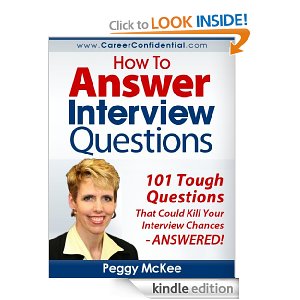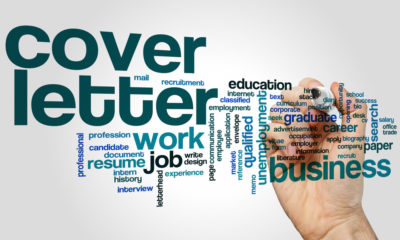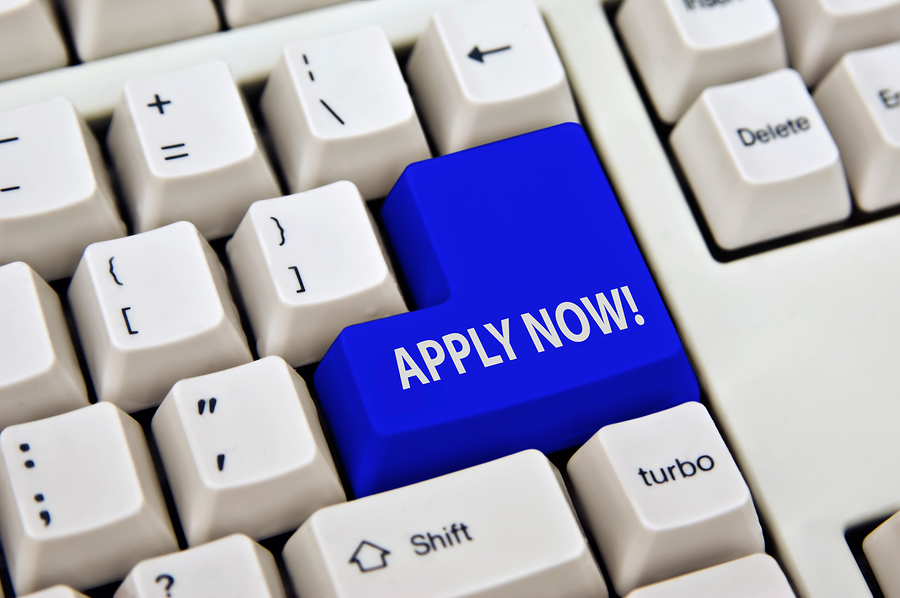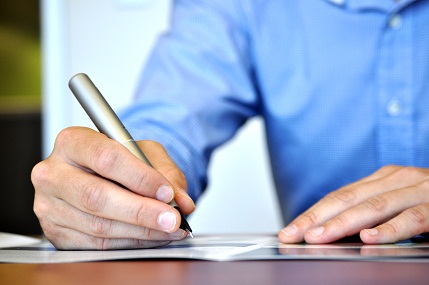Interview
The follow-up phone call
"Thank you for the application. Unfortunately..."
Sound familiar? Have you heard that phrase one too many times?
Let them say that to the next person, not you!
All of your efforts of finding a job to apply for and getting the interview should not go unnoticed. Therefore, don't sit back and wait for those words to haunt you once more. Pick up the phone and follow up with the company that you interviewed with.
What is a follow-up phone call?
A follow-up phone call is as straight forward as it sounds. The call has three main purposes: to thank the interviewer for his or her time, to check if there is anything else that can be done for the application process and to ask how the review of the application is coming along.
"Generally in my experience, a follow up call was an attempt to bring the interview to the top of mind," said Brad Pierson, currently a senior oncology sales representative with Novartis Oncology. "Especially if the interview occcurred early in the day of a full schedule of interviews."
When Pierson was conducting interviews he was the western regional business manager for Ligand Pharmaceuticals.
Thanking the interviewer for his or her time adds a personal interaction that lets him or her know that you are interested in the position and you understand that his or her time is valuable.
Asking if anything else can be done for the application lets the employer know that you are willing to take the extra step to get the job and you want to ensure that all needs have been met for the application.
Lastly, if the employer has not contacted you or mentioned anything about how the reviewing process is going, it is ok to ask. Sometimes employers get busy and forget to call you, which is why it is important to remind them that you want the job. Calling the employer is also important because it shows how passionate you are about the job and may get you that much ahead of the other applicants who did not call and are still waiting.
It is those applicants who did not put forth all efforts who will hear the dreaded phrase.
When should you make the call?
A follow-up call should be made within a week of your job interview. If you are simply calling to say thank you, the call needs to be made within 24 hours of the interview. If you are calling to inquire about the application it is ok to wait three to four days.
However, there are a few instances when making a follow-up phone call is not a good idea.
"If the interview went less than satisfactorily, I would not follow up," Pierson said. "You would want the details of the interview to dim."
Tips for making a follow-up phone call
Be prepared
- Have your resume infront of you so you can quickly answer any last minute questions they may have.
- Make an outline of what you want to say so you do not forget any important points or the reasoning of your call.
Practice
- Run through what you want to say a few times so that when you actually make the call it sounds fluid and so that you can anticipate what you are going to say.
Call in a quiet location
- Make the call somewhere where you can think and not be easily distracted.
Other options
Calling is the best option because it is more personal and shows that you took the time to follow up on the position. However, if calling is not an option, sending an e-mail works as well. Just make sure your spelling and grammar is correct. At the end of your e-mail you can also add your contact information to have it easily accessible to the employer in case he or she wants to immediately call or e-mail back. If you have more time, a handwritten letter or note is acceptable as well.
Blog
Top eBooks Under $5 on Interviews
Need a quick, informational source to provide you with tips on how to prepare and ace your next job interview? Check out some of these eBooks found on Amazon.com that are all under five dollars! These eBooks are not only cheap, but easy to read, convenient and informational.
*Note: All ratings are out of five stars.
 How to Answer Interview Questions
How to Answer Interview Questions
by Peggy McKee
Price: $3.09
Rating: 5
Job Interview Success - How to Land Your Dream Job
by James Ricks
Price: $3.58
Rating: 4.5
Hiring Manager Secrets: 7 Interview Questions You Must Get Right
by Russell Tuckerton
Price: $3.59
Rating: 4.5
Get Hired: 25 Essential Interview Questions Decoded
by John Alexander
Price: $3.50
Rating: 5
Land That Job! The ULTIMATE Guide To Answering Interview Questions (Landing Your Job Series)
by Stacy Michelle
Price: $3.59
Rating: 4
by Angela Massey
Price: $4.21
Rating: 5
Interview Answers (52 Brilliant Ideas)
by Infinite Ideas
Price: $3.17
Rating: 2
Related Articles:
- What are eBooks?
- Top eBooks Under $5 on Resumes
- Top eBooks Under $5 on How to Find a Job
- Top eBooks Under $5 on Discrimination in the Workplace
- Top eBooks Under $5 on Cover Letters
- Top eBooks Under $5 on Working Abroad
- Top eBooks Under $5 on Communication
- Top eBooks Under $5 on College Preparation
- Top eBooks Under $5 on Networking
- Top eBooks Under $5 on Reference Letters
- Top eBooks Under $5 on How to get a Promotion
- Top eBooks Under $5 on Volunteering
- Interview Questions
- Job Interview Preparation
- Types of Interviews
- During the Interview
Blog
Top eBooks Under $5 on Communication
Communication is key, no matter what area of work you are in or even if you are not employed. Clear communication allows for success and further growth of ideas. Use these eBooks found on Amazon.com to help you along the path to clearer communication. Not only are these eBooks easily accessible, they are also all under five dollars!
*Note: Ratings are all out of five stars.
Always Know What To Say - Easy Ways To Approach And Talk To Anyone
by Peter W. Murphy
Price: $0.00
Rating: 3.5
by Georgianna Donadio
Price: $4.25
Rating: 4.5
How to Talk to People: The Shy Person's Guide to Confident Conversation
by Kate Kennedy
Price: $3.59
Rating: 4.5
Small Talk And Beyond: How To Start And Keep Up A Conversation With Anyone
by Victor L. Fox
Price: $3.59
Rating: 4.5
Energised: An Introvert's Guide to Effective Communication
by Mark Hipwood
Price: $3.59
Rating: 4
by Franklin Vocab System
Price: $4.16
Rating: N/A
Small Talk Big Results: Chit Chat Your Way to Success!
by Diane Windingland and LeAnn Gerst
Price: $3.85
Rating: 4.5
 Effective Communication Skills
Effective Communication Skills
by Dean Seddon
Price: $4.59
Rating: N/A
ABC's for How to get Along with People on the Job (Grumpy People)
by Michele L. Gaddis
Price: $3.59
Rating: N/A
by Martin Stanley
Price: $1.19
Rating: N/A
by Pierre Provost
Price: $3.50
Rating: N/A
Related Articles:
- What are eBooks?
- Top eBooks Under $5 on Resumes
- Top eBooks Under $5 on How to Find a Job
- Top eBooks Under $5 on Discrimination in the Workplace
- Top eBooks Under $5 on Interviews
- Top eBooks Under $5 on Cover Letters
- Top eBooks Under $5 on Working Abroad
- Top eBooks Under $5 on College Preparation
- Top eBooks Under $5 on Networking
- Top eBooks Under $5 on Reference Letters
- Top eBooks Under $5 on How to get a Promotion
- Top eBooks Under $5 on Volunteering
- How to Improve Your Communication Skills
Interview
Job Interview: Top 10 tips
Follow these top 10 tips on how to prepare for a job interview and you will be flying with success!

So you've managed to get a job interview? Congratulations! But...the hard work has only just started! The key is preparation. Follow these top 10 tips on how to prepare for a job interview and you will be one step closer to your dream job.
 Top 10 tips
Top 10 tips
1. Research
Research is a critical part of preparing for a job interview. If the employer asks you the common question ´what do you know about our company?´ and you don´t know anything, it not only tells the employer that you´re not interested but you haven´t prepared for the interview. Not only should you research the company but the role you are applying for.
2. Arrive on Time
Arrive on time or even 10 minutes early (even better). There is nothing worse than hearing the phrase ´sorry I'm late´ it not only gives a bad first impression but shows poor preparation and bad time management skills. If necessary, map out the route you need to take or do a trial run so you know how long it will take on the day.
3. Revise your CV
It is vital to know your CV inside and out. Be prepared to speak about your skills, past experiences, hobbies and interests. Always remember to relate it back to the role you are applying for and avoid going off on a tangent, keep it short and sweet.
4. Practice Questions
It is a very good idea to practice an interview with friends or family to build your confidence and learn to answer questions with fluency without filling the gaps with érm´and ´hmm´. Think of possible questions and and answers that the employer could ask you and try to answer them.
5. Dress Code
Dress code is essential part of your first impression. Your future employer wants to be able to vision you in the role you are applying for, so make sure your appearance is of a high standard on the day. If you know you will be dressing more casual/smart for the role, it is always best to attend the interview smart and well dressed to give an excellent first impression.
6. Etiquette
ALWAYS be polite, shake their hand and look the employer in the eye. Always use Sir or Madame unless the employer asks you to use their name. Throughout the interview never slouch or sit on the edge of the seat as this gives an impression that you are not interested and eager to leave. Sit comfortably, up right and hands on your lap. It is important to show a professional attitude throughout your interview.
7. What to bring to an interview?
Do NOT turn up with a massive bag full of things you need for the gym or a bag full of things you don´t need. Be professional, take a professional folder including extra copies of your CV, references, a pad of paper and pen in-case you need to write something down.
8. SMILE
Smiling and friendliness is important when presenting yourself in an interview. Greet the receptionist and anyone that passes you with a smile, as you never know if they have influence in the decision process.
9. Ask questions
At the end of an interview when the employer asks you if you have any questions, NEVER say no. You should have at least 5 questions written down to ask the employer to show your interest about the company and the role.
10. Thank you note
A Thank you note is a thoughtful gesture of appreciation for the employer taking their time to interview you. The sole purpose of this letter is to make sure your name is kept at the front of the pile. Keep the letter short as you just want to remind them of your interview and emphasise how much you do want the job. This will remind them of what a great candidate you were.
-
Blog12 years ago
Sorority Recruitment
-
Resume and CV13 years ago
Letters of recommendation / references
-
Resume and CV13 years ago
Resume or Curriculum Vitae (CV) ?
-

 Resume and CV13 years ago
Resume and CV13 years agoWhich Resume Format Should I Choose?
-
Resume and CV13 years ago
Basic rules for writing your resume
-

 Cover Letter13 years ago
Cover Letter13 years agoThe cover / motivation letter
-
Cover Letter13 years ago
Europass CV
-
Sample Resumes, Examples and Templates13 years ago
Reference Example







